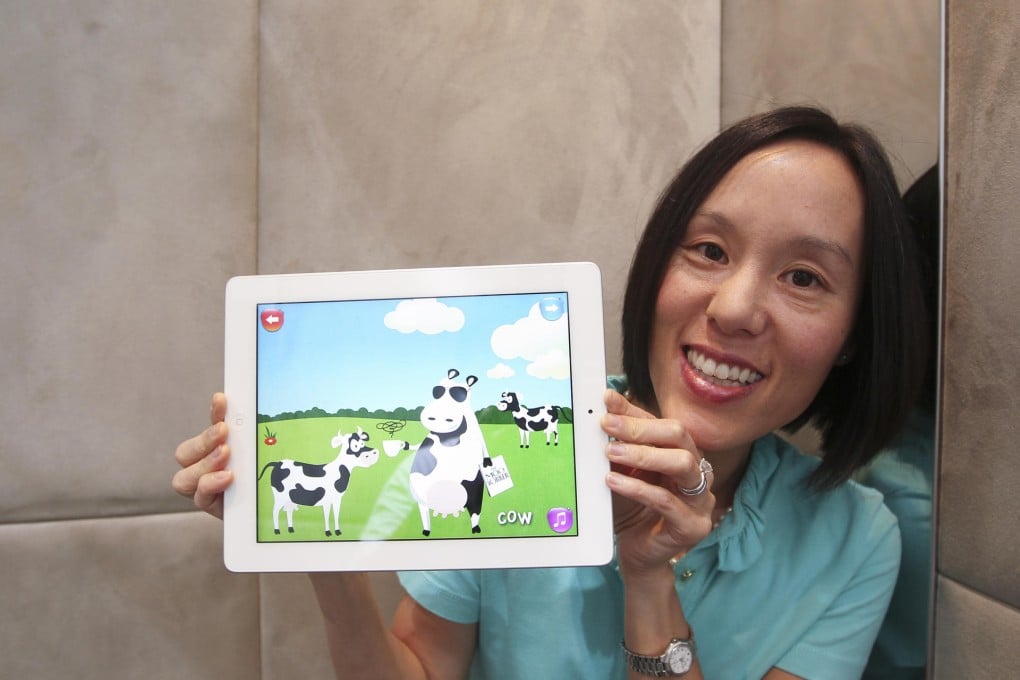App founder keeps family tradition of education alive with Duck Duck Moose
Three friends' bid to create a fun way to teach their children has led to a budding app empire.

Caroline Hu Flexer's favourite memories of Hong Kong are of summers spent here as a child. She would fly in from California to spend lazy days with her maternal grandparents Rupert and Margaret Li at Swindon Book Company, which they founded.
So it gives the so-called "mompreneur" some satisfaction to have created award-winning electronic flipbooks for children through her app development firm Duck Duck Moose.
"My great-grandfather started in the book business in Hong Kong, and my grandfather grew Swindon Book Company, Hong Kong Book Centre, and Kelly & Walsh. So I see a bit of connection with what we do at Duck Duck Moose," she says.
Becoming an entrepreneur wasn't part of her career plan. She studied architecture at Princeton, followed by a masters at Harvard and an MBA at Stanford. "Duck Duck Moose came out of my personal passion for education and technology," she says.
Hu Flexer, with her husband Michael Flexer and friend Nicci Gabriel, founded the company in 2008, bringing together shared interests in music, education, design and play.